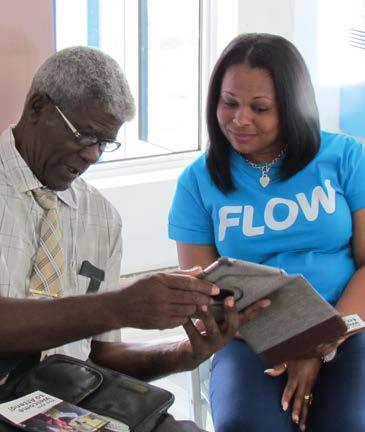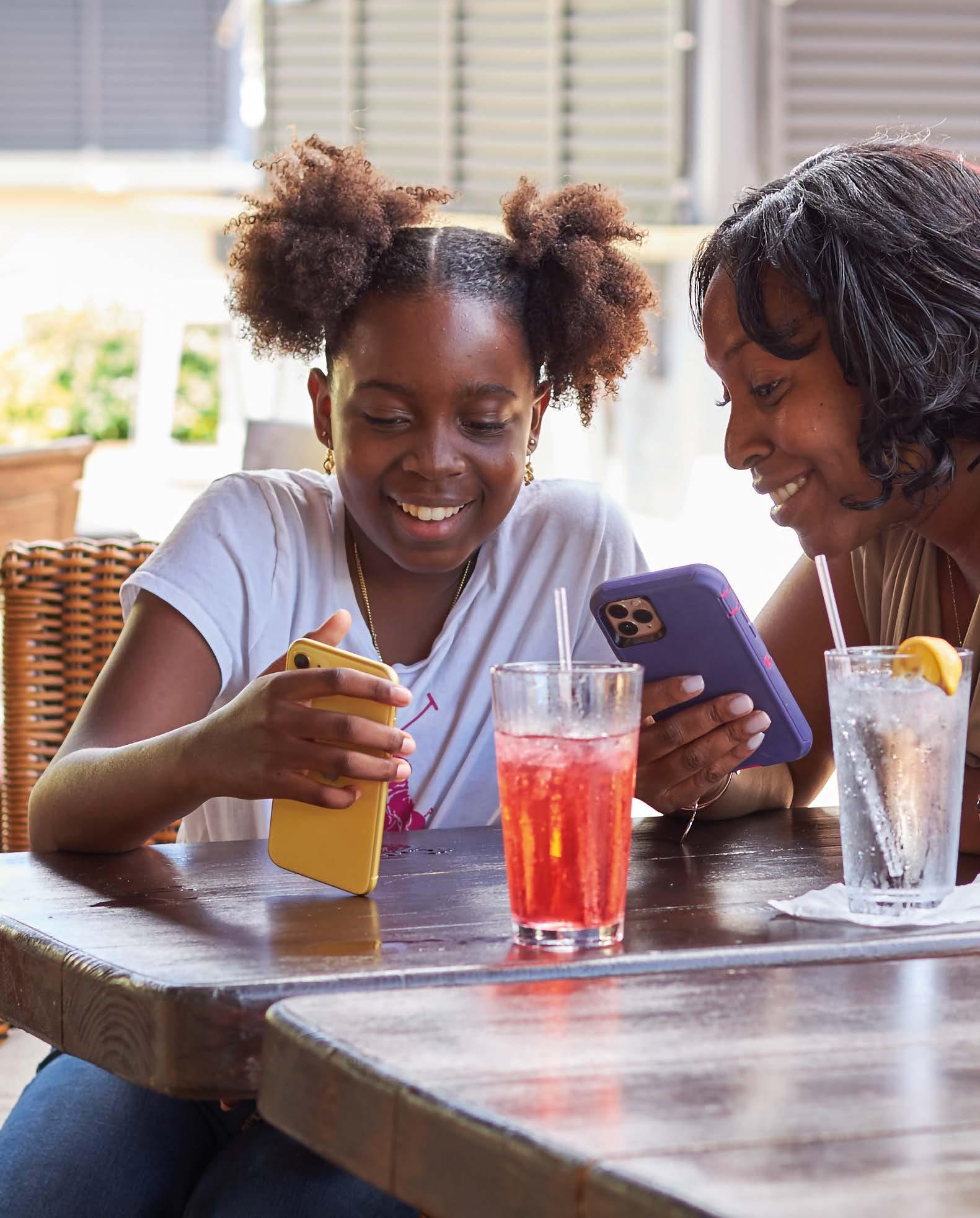
6 minute read
AN ESSENTIAL ISLAND SERVICE
First operating under the Cable and
Wireless brand, Flow began its operations in the British Virgin Islands (BVI) in the spring of 1898, when the first telegraph cable linking Europe and the Americas landed in Tortola. As a testament to the resilience of its network over the years, the BVI would later become a central part of the company’s operations, with Flow feeding the majority of the northeastern Caribbean islands from its Chalwell base.
Advertisement
Today BVI remains a critical part of Flow’s network operations, with the majority of fiber cables linking the Americas to Europe passing through the BVI. The company launched
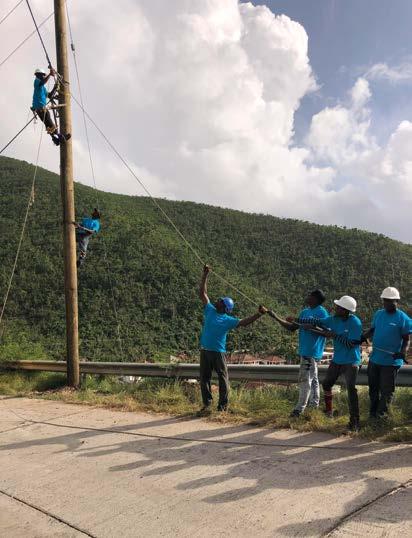
Sustainable Business Magazine speaks to Ravindra Maywahlall, Country Manager at Flow British Virgin Islands, about their posthurricane recovery, partnerships with government and NGOs, and the value of thinking long-term.
its LTE network in the British Virgin Islands on November 17, 2016 and has since expanded its service offering to include fixed-line, broadband, TV, and mobile services, catering to both B2B and B2C clients.
BACK FROM THE BRINK
In 2017, the British Virgin Islands were hit by two Category Five hurricanes, Irma and Maria, inflicting severe damage on the telecommunications networks. Since then, Flow has been working to rebuild the network and improve its services across the affected islands. “Irma and Maria completely destroyed our mobile and fixed infrastructure,” says Ravindra Maywahlall, Country Manager at Flow BVI. “We were able to rebuild our mobile network fairly quickly, so by the first quarter of 2018 we had our mobile network restored, but we’re still in the process of rebuilding our fixed infrastructure. Prior to the storms, we operated a hybrid copper-fiber network and offered speeds of up to 48Mbps to customers. In June 2018 we started deploying fiber directly to the customer premises and expect to complete the network rebuild by December this year. Our aim is to have a similar footprint to that which we had prior to the storms.”
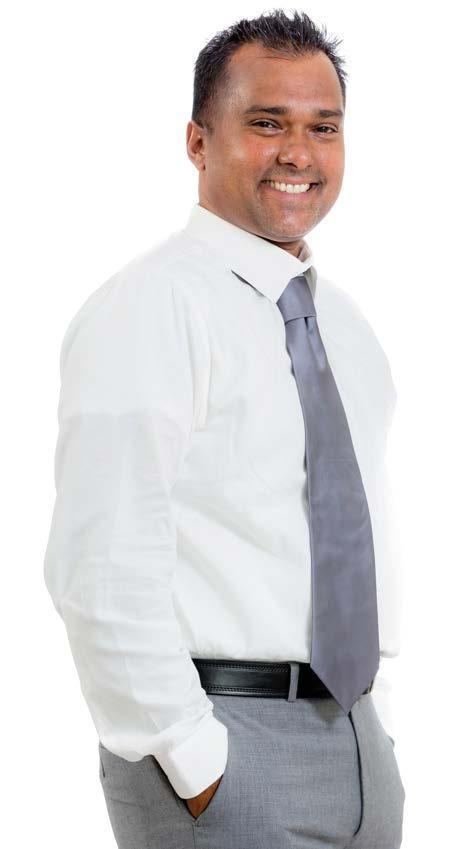
Flow is rebuilding with fiber and is seeking to make the network as resilient as possible, to safeguard against similar events in the future. “When the storms hit, they destroyed a lot of our distribution network, however our

core infrastructure remained intact as they were in cable ducts underground,” explains Mr. Maywahlall. “Thus, as we rebuild, we’re placing as much of the distribution network as possible in the ducts, and aerial connections will be attached to category 5 utility poles, capable of withstanding winds of up to 175 mph, thus enhancing our network resilience. We are now offering Broadband speeds of up to 1Gbps, with entry level speeds of 100 Mbps to meet the increasing demands and future needs of our customers.”
TAKING RESPONSIBILITY
For Flow BVI, supporting local communities remains at the forefront. “Over the years, we’ve partnered with various non-profit organizations and the government,” says Mr. Maywahlall. “After the storms of 2017, the second-most populated island in the BVI, Virgin Gorda, saw both its primary and high schools destroyed. So, through the Cable & Wireless Charitable Foundation, we partnered with a non-profit organization called Unite BVI, funded by philanthropists such as Sir Richard Branson and Larry Page, as well as the Ministry of Education, to rebuild those schools. While we were onsite, the BVI Sister Islands Coordinator brought to our attention that there was an elderly gentleman whose home had sustained significant damage. A couple of weeks later, as part of our annual ‘Mission Week’ volunteer activities, we took our entire team over to Virgin Gorda to start the process of rebuilding the roof of the house. For that, we partnered with a local organization, called VG RoC. Although we didn’t manage to complete the roof that day, we hired some contractors to assist us with completing the project, to provide a safe and weatherproof home for the gentleman to live in.”
In the wake of COVID-19, Flow also supported the Ministry of Education and the government’s pandemic response.
“We understood the importance of having internet connectivity particularly as we were being asked to work and attend school from home,” explains Mr.Maywahlall. “As such, we launched initiatives to get as many citizens connected as fast as possible, to keep them connected to what mattered most. To ensure that students would not be left behind we provided free access to our Flow Study platform to students from primary school right through to A-levels giving them the opportunity to continue their learning online. We also provided free access to all education sites that were being used by teachers who needed online materials to deliver classes. Those measures are still in place, and we’ve agreed to keep them for as long as the pandemic continues.
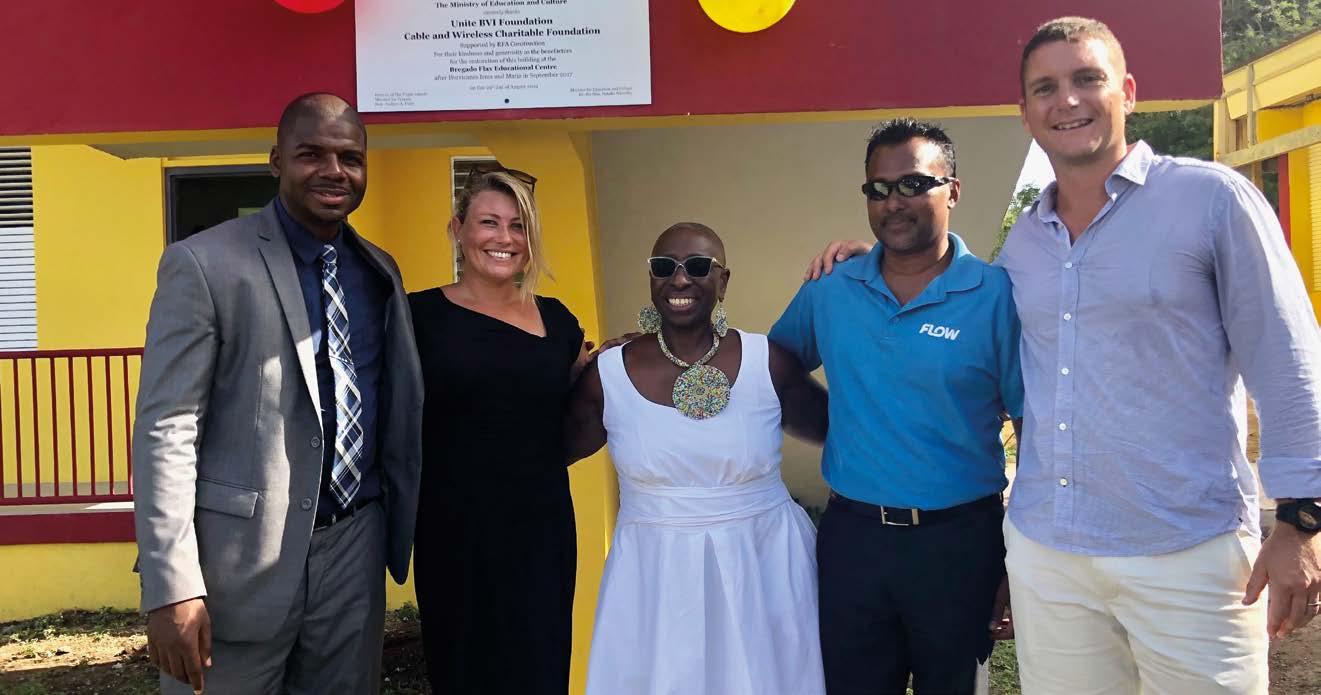
Flow is also keen to reconfirm its commitment to supporting those in need. “As we learn to live with the pandemic, there will be many vulnerable families, individuals and businesses who will be significantly impacted and we are here to help,” says Mr. Maywahlall. “One of the things we’ve done very well over the years is to partner with the community and with government. Most recently we partnered with a couple of the Rotary Clubs and Lions Club to execute food drives and gave donations to the Family Support Network organization to provide basic necessities to families.”
THINKING LONG-TERM
Taking a long-term approach, Flow’s primary aim is to make lasting improvements to the resilience of its network. “With the ever-increasing strength of the storms we’re facing each year, resilience is key,” says Mr. Maywahlall. “It’s now known that access to telecommunications services is no longer a privilege, it’s an essential service. We need to make sure that service remains intact, no matter what Mother Nature throws at us. So, we also have plans to offer more advanced IP-based services, allowing low start-up costs for anyone looking to operate from the BVI. We’re also now offering solutions such as cloud-based PBXs or Business Voice, and SDWANs (Software Defined Wide Area Networks), so that customers with internet connectivity can connect and do businesses from anywhere in the world.”
“This is also our commitment to facilitate the BVI’s two main economic pillars: financial services and tourism,” explains Mr. Maywahlall. “Connectivity is key to attracting international investment and businesses to the BVI,” explains Mr. Maywahlall. “To facilitate that, we need reliable, fast, and affordable internet connectivity which is why we are deploying fiber and increasing speeds to provide the confidence that international investors are seeking. Reliable connectivity also fosters remote tourism, where individuals may choose to work in the BVI for a period of time. Our products and solutions also make it simple for start-up businesses to easily use advance payment type processes or WiFi connectivity inside their vehicles to deliver product enhancements to their customers.”
